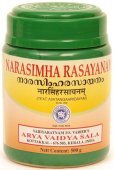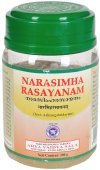Pivari, Pīvarī, Pīvari: 10 definitions
Introduction:
Pivari means something in Hinduism, Sanskrit, biology, Tamil. If you want to know the exact meaning, history, etymology or English translation of this term then check out the descriptions on this page. Add your comment or reference to a book if you want to contribute to this summary article.
In Hinduism
Purana and Itihasa (epic history)
Source: Wisdom Library: Varāha-purāṇaPīvarī (पीवरी).—Name of a river (nadī) situated near the seven great mountains on the western side of mount Naiṣadha, according to the Varāhapurāṇa chapter 83. These settlements consume the water flowing from these seven great mountains (Viśākha, Kambala, Jayanta, Kṛṣṇa, Harita, Aśoka and Vardhamāna). Niṣadha (Naiṣadha) is one of the seven mountains located in Jambūdvīpa, ruled over by Āgnīdhra, a grandson of Svāyambhuva Manu, who was created by Brahmā, who was in turn created by Nārāyaṇa, the unknowable all-pervasive primordial being.
Source: archive.org: Puranic EncyclopediaPīvarī (पीवरी).—Wife of Śukabrahmarṣi, son of Vyāsa. Śuka got of Pīvarī four sons named Kṛṣṇa, Gauraprabha, Bhūri and Devaśruta and a daughter named Kīrti. (See under Śuka).
Source: Cologne Digital Sanskrit Dictionaries: The Purana Index1a) Pīvarī (पीवरी).—A daughter of Pulaha and Kṣamā.*
- * Brahmāṇḍa-purāṇa II. 11. 31; Vāyu-purāṇa 28. 26.
1b) The mind-born daughter of Agniṣvāttapitṛs; becomes the wife of Śuka in the 28th dvāpara.*
- * Brahmāṇḍa-purāṇa III. 10. 77-78.
1c) A mind-born daughter of Barhiṣad manes who performed severe austerities and earned the title of Yogamātā. The Lord blessed her to be the wife of Śuka, the son of Vyāsa and after giving birth to four sons and a daughter she would attain salvation;1 wife of Śuka.2
1d) The wife of Vedaśiras;1 sons, Mārkaṇḍeyas.2
1e) A R. of the Ketumālā country.*
- * Vāyu-purāṇa 44. 22.
1f) The mind-born daughter of Pitṛ Dharmamūrtidharas; becomes the wife of Śuka and mother of Kīrtimatī.*
- * Vāyu-purāṇa 73. 26.

The Purana (पुराण, purāṇas) refers to Sanskrit literature preserving ancient India’s vast cultural history, including historical legends, religious ceremonies, various arts and sciences. The eighteen mahapuranas total over 400,000 shlokas (metrical couplets) and date to at least several centuries BCE.
Ayurveda (science of life)
Nighantu (Synonyms and Characteristics of Drugs and technical terms)
Source: WorldCat: Rāj nighaṇṭuPīvarī (पीवरी) is another name for Śatāvarī, a medicinal plant identified with Asparagus racemosus Willed. (or “buttermilk root”) from the Asparagaceae family of flowering plants, according to verse 4.116-119 of the 13th-century Raj Nighantu or Rājanighaṇṭu. The fourth chapter (śatāhvādi-varga) of this book enumerates eighty varieties of small plants (pṛthu-kṣupa). Together with the names Pīvarī and Śatāvarī, there are a total of thirty-two Sanskrit synonyms identified for this plant.
Kalpa (Formulas, Drug prescriptions and other Medicinal preparations)
Source: Shodhganga: Edition translation and critical study of yogasarasamgrahaPīvarī (पीवरी) is another name for “Śatāvarī” and is dealt with in the 15th-century Yogasārasaṅgraha (Yogasara-saṅgraha) by Vāsudeva: an unpublished Keralite work representing an Ayurvedic compendium of medicinal recipes. The Yogasārasaṃgraha [mentioning pīvarī] deals with entire recipes in the route of administration, and thus deals with the knowledge of pharmacy (bhaiṣajya-kalpanā) which is a branch of pharmacology (dravyaguṇa).

Āyurveda (आयुर्वेद, ayurveda) is a branch of Indian science dealing with medicine, herbalism, taxology, anatomy, surgery, alchemy and related topics. Traditional practice of Āyurveda in ancient India dates back to at least the first millenium BC. Literature is commonly written in Sanskrit using various poetic metres.
Biology (plants and animals)
Source: Wisdom Library: Local Names of Plants and DrugsPivari [पीवरी] in the Hindi language is the name of a plant identified with Pleurolobus gangeticus (L.) J.St.-Hil. ex H.Ohashi & K.Ohashi from the Fabaceae (Pea) family having the following synonyms: Desmodium gangeticum, Hedysarum gangeticum. For the possible medicinal usage of pivari, you can check this page for potential sources and references, although be aware that any some or none of the side-effects may not be mentioned here, wether they be harmful or beneficial to health.
Pivari [पीवरी] in the Sanskrit language, ibid. previous identification.
Source: Google Books: CRC World Dictionary (Regional names)1) Pivari in India is the name of a plant defined with Abroma augustum in various botanical sources. This page contains potential references in Ayurveda, modern medicine, and other folk traditions or local practices It has the synonym Ambroma augusta L.f. (among others).
2) Pivari is also identified with Asparagus racemosus It has the synonym Asparagopsis acerosa Kunth (etc.).
3) Pivari is also identified with Desmodium gangeticum It has the synonym Hedysarum ochroleucum Moench (etc.).
4) Pivari is also identified with Withania somnifera It has the synonym Withania somnifera var. macrocalyx Chiov. (etc.).
Example references for further research on medicinal uses or toxicity (see latin names for full list):
· Species Plantarum. (1799)
· Candollea (1993)
· Journal of Ethnopharmacology (1985)
· Tent. Fl. Abyss. (1850)
· Prodromus Systematis Naturalis Regni Vegetabilis (1825)
· Taxon (1980)
If you are looking for specific details regarding Pivari, for example pregnancy safety, health benefits, side effects, diet and recipes, extract dosage, chemical composition, have a look at these references.

This sections includes definitions from the five kingdoms of living things: Animals, Plants, Fungi, Protists and Monera. It will include both the official binomial nomenclature (scientific names usually in Latin) as well as regional spellings and variants.
Languages of India and abroad
Sanskrit dictionary
Source: Cologne Digital Sanskrit Dictionaries: Monier-Williams Sanskrit-English Dictionary1) Pīvarī (पीवरी):—[from pīvan > pīna] a f. a young woman, [cf. Lexicographers, esp. such as amarasiṃha, halāyudha, hemacandra, etc.]
2) [v.s. ...] a cow, [cf. Lexicographers, esp. such as amarasiṃha, halāyudha, hemacandra, etc.]
3) [v.s. ...] Asparagus Racemosus, [cf. Lexicographers, esp. such as amarasiṃha, halāyudha, hemacandra, etc.]
4) [v.s. ...] Desmodium Gangeticum, [Bhāvaprakāśa]
5) [v.s. ...] Name of a spiritual daughter of the Barhi-ṣad Pitṛs and wife of Veda-śiras, [Harivaṃśa]
6) [v.s. ...] of a princess of Vidarbha, [Mārkaṇḍeya-purāṇa]cf. [Greek] πίων for πίϝων, .
7) [from pīna] 1. pīvarī f. of pīvan q.v.
8) [v.s. ...] 2. pīvarī ind. for pīvara.
[Sanskrit to German]
Sanskrit, also spelled संस्कृतम् (saṃskṛtam), is an ancient language of India commonly seen as the grandmother of the Indo-European language family (even English!). Closely allied with Prakrit and Pali, Sanskrit is more exhaustive in both grammar and terms and has the most extensive collection of literature in the world, greatly surpassing its sister-languages Greek and Latin.
Tamil dictionary
Source: DDSA: University of Madras: Tamil LexiconPīvari (பீவரி) noun < pīvarī. ((சங்கத்தகராதி) தமிழ்சொல்லகராதி [(sangathagarathi) thamizhsollagarathi])
1. Indian winter cherry; அமுக்கிரா. [amukkira.]
2. Cow; பசு. [pasu.]
3. Young woman; பருவப்பெண். [paruvappen.]
4. Female parrot; பெண்கிளி. [penkili.]
Tamil is an ancient language of India from the Dravidian family spoken by roughly 250 million people mainly in southern India and Sri Lanka.
See also (Relevant definitions)
Starts with: Pivarikar, Pivarikrita.
Full-text (+9): Pivan, Yogamatar, Yogapatni, Pivarikrita, Dharmamurtidhara, Yogamatri, Anu, Gauraprabha, Kritvi, Devashruta, Agnishvatta, Prabhu, Gaura, Shuka, Vipashcit, Vibhrajaraja, Driti, Kshama, Kirti, Vedashiras.
Relevant text
Search found 16 books and stories containing Pivari, Peevari, Pīvarī, Pīvari; (plurals include: Pivaris, Peevaris, Pīvarīs, Pīvaris). You can also click to the full overview containing English textual excerpts. Below are direct links for the most relevant articles:
Historical Elements in the Matsya Purana (by Chaitali Kadia)
Lineages of Pitṛ < [Chapter 6 - Human history in the Matsya-Purāṇa]
Status of Women in the Matsya Purāṇa < [Chapter 5 - Cultural history in the Matsya-Purāṇa]
Rig Veda (translation and commentary) (by H. H. Wilson)
Puranic encyclopaedia (by Vettam Mani)
The Brahmanda Purana (by G.V. Tagare)
Chapter 11 - The creation of Sages (saptarṣi) < [Section 2 - Anuṣaṅga-pāda]
Chapter 10 - Birth of Skanda < [Section 3 - Upodghāta-pāda]
Chapter 8 - The race of the sages: Atri and Vasiṣṭha < [Section 3 - Upodghāta-pāda]
The Vishnu Purana (by Horace Hayman Wilson)
Harivamsha Purana (by Manmatha Nath Dutt)
Chapter 23 - The Curse of the Birds (continued) < [Book 1 - Harivamsa Parva]
Chapter 18 - An Account of Pitris < [Book 1 - Harivamsa Parva]
Related products

